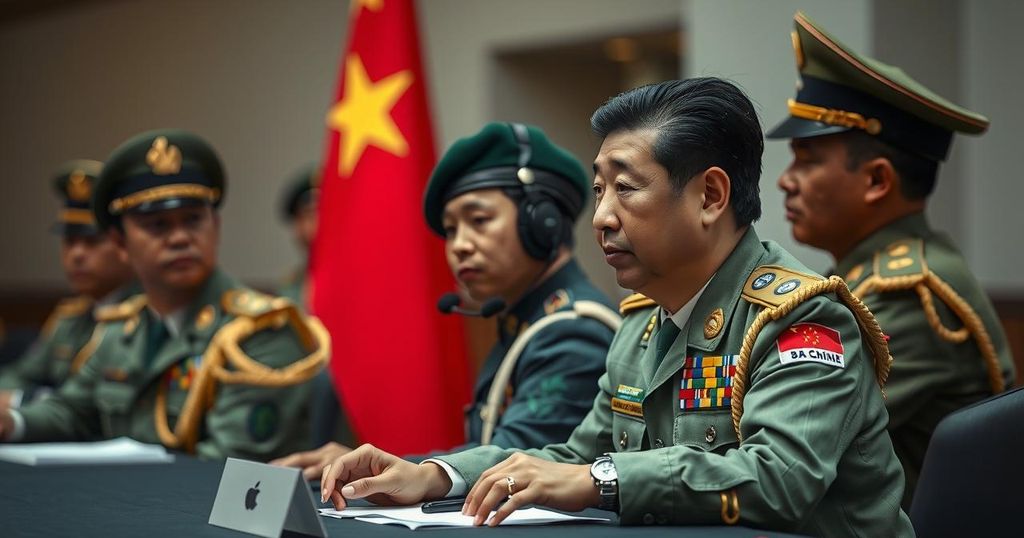Chinese Foreign Minister Wang Yi pledged military aid to Africa during his visit to Nigeria, promising one billion yuan in support, which includes training for 6,000 troops and 1,000 police officers. The engagement underscores China’s increasing involvement in Africa’s security issues amid geopolitical rivalries, particularly with Western nations.
In a significant diplomatic engagement, Chinese Foreign Minister Wang Yi, concluding his recent tour of Africa, announced Beijing’s commitment to providing military assistance to the continent. In his remarks in Abuja, Nigeria, he affirmed China’s intention to support African nations in managing their security challenges independently. Wang pledged one billion yuan (approximately $136 million) in military aid, which will include training for 6,000 troops and 1,000 police officers across Africa, aimed at enhancing regional stability and security.
During his tour, which commenced on January 6, Minister Wang visited several countries, including Namibia, the Republic of Congo, and Chad, before meeting with Nigerian President Bola Ahmed Tinubu and Foreign Minister Yusuf Tuggar. He underscored China’s dedication to empowering African countries to address their issues autonomously, emphasizing that “African people are the real masters of this continent.” This visit aligns with China’s broader strategy to bolster its influence in Africa amid growing geopolitical tensions, particularly with Western nations.
China maintains a robust economic partnership with Nigeria, which is a key provider of oil and gas resources to Beijing. In 2023, bilateral trade between the two nations reached $22.6 billion. As Africa’s largest trade partner, China has engaged in numerous infrastructure projects, financed through public bank loans, though this has occasionally led to rising debt among recipient countries.
The geopolitical dynamics in Africa have intensified recently, particularly following a series of military coups across West Africa. Countries formerly allied with traditional colonial powers are increasingly looking towards nations like China and Russia for support and collaboration. China’s trade and investment in Africa reached a substantial $167.8 billion in early 2024, reinforcing its strategic position on the continent. This shift is further exemplified by President Xi Jinping’s commitments of $50 billion in aid during a summit with African leaders in September.
The article addresses China’s escalating engagement with Africa, highlighting diplomatic and military commitments made by Chinese officials to support the continent’s security and development needs. Amidst geopolitical rivalry, particularly with Western countries, China’s influence in Africa is marked by significant trade agreements and military aid pledges, reflecting a strategic pivot towards fostering strong bilateral relations. The context of instability in certain African nations due to recent coups provides a backdrop against which China seeks to enhance its role as a key partner for development and cooperation.
In conclusion, China’s recent pledge of military aid to Africa, articulated by Foreign Minister Wang Yi, reflects a strategic approach to bolster its influence on the continent amidst evolving geopolitical dynamics. By emphasizing African autonomy and pledging substantial support for military training and resources, China aims to strengthen its partnerships in a landscape marked by political shifts. This initiative represents both a commitment to African security and a response to global competition for influence in the region.
Original Source: www.france24.com






